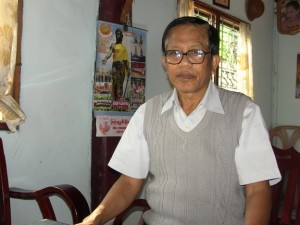Min Thu Ta – The General Secretary of the United Nationalities Federal Council (UNFC), Nai Hong Sar, said that despite an agreement reached between Presidential Minister U Aung Min’s peace negotiating team and a UNFC delegation, political dialogue could be delayed due to the Burmese military offensive in Kachin State.

“A group of Minister U Aung Min-led government peace negotiators and some representatives of the UNFC had a meeting on November 9 in Chiang Mai, northern Thailand. At the meeting, both sides agreed to solve political problems by political means and to work together to seek solutions toward nationwide ceasefire and the ongoing war in Kachin State.”
The UNFC was formed on February 16, 2011, and allies 11 members, including the Kachin Independence Organization, Karen National Union, and New Mon State Party, among others.
Since late December, the Burmese military has stepped up offensive attacks on Kachin troops, allegedly using fighter jets, helicopter gunships, firing 105 and 120 mm cannons, and dropping bombs and rockets. The UNFC has come out in firm opposition to these tactics, urging the government to end its military aggression against the Kachin Independence Army (KIA) in a statement released on January 1.
The government initially denied the use of aerial attacks against KIA troops, but now concedes to the airstrikes.
In response, the United States said it was “deeply troubled” by the use of air power, and the United Nations pressed the Burmese government on January 2 to stop the fighting and resolve differences through dialogue.
Nai Hong Sar said, “In the more than six decades of civil war, although the Burmese army has used lots of financial and human resources and military strategies, including the “Four Cuts” campaign, to fight against the armed ethnic groups, no group has been fully wiped out. The outcomes from these actions caused many civilians to suffer and the country to fall behind the times. But the government has not learned the lessons from its mistakes yet. It still solves problems with guns, so it will become the aggressor against civilians.”
Since Burma, also called Myanmar, gained its independence from Great Britain on January 4, 1948, ethnic minorities have taken up arms to fight for greater autonomy and rights.

